The first foundation trust merger to be cleared by the competition watchdog was passed after other NHS providers were found to be strong competitors in the local health economy, plus the rest of today’s news and comment

5.47pm A few more updates from the health select committee, chair Sarah Wollaston asked Tim Kelsey whether there might be a possibility for patients to opt out specifically bits of data being extracted.
Mr Kelsey said Ben Goldacre is calling for that kind of opt-out and said “we are really listening”. He said the body is working to do a roadmap to see if that is possible, but admitted “there are some technical complications”.
He later clarified that if a patient chose tp opt-out, no data would leave their GP other than for “exceptional circumstances” such as court order or an outbreak.
He admitted there is a “genuine public concern” that “millions of public records are being dumped”. He added: “We need to be intelligent and clear about making our benefits case”.
HSCIC chair Kingsley Manning also said there is a “very real concern” about clinical data and data held by other departments such as the HRMC and benefits data. He said there is a need for clarity over that.
4.56pm When asked by MP Valerie Vaz on when the pilot stage of the Care.data programme is due to end, Tim Kelsey said a number of pre-conditions would need to be met before they can start, for example the HSCIC code of practice would need to be published, and the practices involved and patient representative groups would need to agree to the materials.
Mr Kelsey said there would be a period of evaluation of “maybe a month” after the information has initially been extracted followed by consideration over whether there may need to be a further set of pilots. He said it would be possible to give a date at this stage.
4.34pm When asked by committee chair Sarah Wollaston about whether concerns about ‘naming and shaming’ and ‘redflagging’ GP being a barrier to Care.data being implement, Tim Kelsey said he hasn’t seen this being picked up as issue and as impacting peoples’ views about the programme.
4.31pm Tim Kelsey has said the benefits case for Care,data is “really strong” and “there are people dying because we are not linking data.” However, he had admitted he has concerns that “we are in a 21st century enviromment where nothing is safe” and there needs to be a conversation about trade-offs.
“This is new territory, not just for healthcare but for public services in general,” he added.
4.23pm At the health select committee, Tim Kelsey has spoken about the reasons for NHS England’s decision to postpone the launch of the its controversial Care.data programme.
Mr Kelsey said “what we are hearing is a consistent series of concerns” about what the body needs to address. He said he has had “numerous” meetings with the BMA, Royal College of GPs Healthwatch and other group.
He also pointed to the creation of the Care.data advisory group.
He said NHS England is now proposing a “phased roll out” in the Autumn, with a series of “pathfinder” pilots, which will be subject to independent evaluation.
4.13pm The future of GP services for around 10,000 people in central London has been thrown into doubt, with the contractors for three practices set to stop providing services.
4.04pm There are only four days left to enter the HSJ Awards 2014.
Now in their 33rd year, HSJ Awards’ 22 categories recognise and reward best practice in healthcare organisations throughout the country.
The entry deadline - extended due to popular demand - will close on Friday 4 July and so this is your last chance to be in the running for the largest and most sought after accolade in British healthcare.
We invite you to nominate examples of innovation and excellence in your organisation that have made a real difference to your patients and staff.
3.44pm In supermarkets, shoppers now order goods online or do all the work at the checkout. To enable a similar revolution in healthcare there needs to be much better logistical support for patients managing their own care, says Mark Britnell, partner and head of health for Europe, KPMG LLP.
2.59pm Kingsley Manning, chair of the Health and Social Care Information Centre, HSCIC non-executive director Sir Nick Partridge and Tim Kelsey, NHS England’s national director for patients and information are appearing in front of the health select commitee about the handling of NHS patient data.
Click here to watch their appearance live.
2.47pm A majority of people would be prepared to pay more tax to support the NHS, and would not mind if services were provided by the NHS or private company as long as they remain free at the point of delivery, a ComRes survey carried for The Independent has found.
2.23pm The Times reports on NHS England’s national director for acute episodes of care suggesting that people need to accept changes made within the NHS more readily.
Professor Keith Willet has claimed that thousands of patients have died unnecessarily due to reluctance among both the public and doctors to accept previous
2.08pm In The Daily Mail, diabetes sufferers who are over the age of fifty are better off controlling their disease with lifestyle changes rather than regulating blood sugar levels with insulin injections, researchers from University College London and the University of Michigan claim.
1.55pm Looking through today’s papers, the Medicines and Healthcare Products Regulatory Agency (MHRA) have claimed that the antiseptic chlorhexidine could have contributed to the death of three premature babies in UK hospitals by causing chemical burns, The Guardian reports.
1.42pm Stephen Dorrell has said that commissioners “are not system planners” and “should be more careful to avoid the trap of second guessing the management of care delivery”.
In a speech delivered at Reform’s conference on coordinated health and social care, the former health select committee chair said: “Throughout the game of musical chairs imposed by successive governments, NHS and social care commissioning has been obsessed by process.”
“Endless contractual processes seeking to define every detail of the answer but almost no attempt to understand the question.”
Instead, he said “effective commissioners should focus on understanding the problems they are trying to solve”.
He also described “the argument about which is the ideal funding model” for the health service as a “dangerous distraction from more important challenges which all commissioners face in common, whatever the basis on which they are funded”.
“At the heart of those challenges is the relationship between the commissioner and the individual patient or service user – people in plain English,” he said.
“Commissioners need to develop a new partnership with their communities which is based on mutual respect and engagement,” he added, warning that they “cannot afford to see themselves, or be seen, as dispensers of state charity”.
He said “by abandoning traditional demarcations, the commissioner is able to look beyond healthcare provision and focus on health” and commissioners who works as partners would “aim to facilitate the individual’s choices, rather simply provide what is good for them”
He added “this new style commissioner will see an individual’s need for care and support not as a support for medicine, but rather as the core activity of a system which is able to marshal high quality medical intervention when necessary”.
Concluding his speech, he warned: “But we should always remember that failure to carry through necessary change will always have a consequence, and very often it is the people whose voice is weakest whom those consequences are visited.”
He said: “If we allow an unjustified status quo to prevail the result is that resources are used to protect the powerful rather than improve the life chances for the people who were at the back of the queue when the opportunities were handed out.”
You can find the full script of Stephen Dorrell’s speech attached.
Follow HSJ reporter Will Hazell (@whazell) and comment editor Andy Cowper (@HPIAndyCowper) on Twitter for further coverage from the speech and the rest of the conference.
The electronic access cards of 53 staff taking part in industrial action which was due to start last week have been cancelled.
Staff were asked to stay at home or protest off the premises for the past five days.
The trust claimed it took the action to safeguard patient safety as it was unclear what work staff would refuse to do. It has brought in additional staff to maintain the service.
1.00pm The current chair and chief executive of the Care Quality Commission abused their power and acted maliciously in publishing allegations that a former executive ordered a “cover up” of the regulator’s failings, papers filed at the High Court allege.
The papers were filed by former CQC deputy chief executive Jill Finney.
She is suing the regulator for alleged libel and breach of her human rights over the CQC’s publication of a report by auditors Grant Thornton last June.
This report alleged Ms Finney had ordered the deletion of an internal review of the CQC’s regulation of University Hospital Morecambe Bay Foundation Trust, a claim she has always denied.
12.45pm Hundreds of lives are being saved every year thanks to a change in the way trauma patients are cared for, a new review suggests.
Since the introduction of regional trauma centres patients in England have a 30 per cent better chance of surviving severe injuries, the Trauma Audit and Research Network said.
This equates to around 600 lives since the centres came to being in April 2012.
12.34pm Joanne Bailey, a GP, has been appointed to chair an independent group set up to advise on the use of patient data from GP records.
The role of the General Practice Extraction Service Independent Advisory Group is to the Health and Social Care Information Centre on requests for information that could be collected by GPES3, the service that has been developed to collect data from GP practices across England.
The body was was established in 2012 and plays a vital role in ensuring that any data extracted from general practice systems using GPES will deliver benefits for patients whilst protecting patient confidentiality and privacy.
Dr Bailey has been member of the body since it was established in 2012, as its inception as its nominated representative of the British Medical Association.
She replaces chair Neil Serougi, who is stepping down after two years in the position.
She was nominated by Dame Fiona Caldicott, chair of the Independent Information Governance Oversight Panel.
Dr Bailey said she is “delighted to be taking on this role”.
“I intend to ensure that the Independent Advisory Group continues to put at the heart of its decision making the dual aims of protecting patient confidentiality and using data to improve health services and treatments in the future,” she added.
12.02pm The Foundation Trust Network and The Kings Fund today launched the paper ‘Future Organisational Models for the NHS: Perspectives for the Dalton Review’.
Commenting on the publication, FTN chief executive Chris Hopson, chief executive said: “The key point to emerge is that there is no single solution or universal panacea. Rather there should be a range of models to suit the different circumstances that trusts and foundation trusts find themselves in, so that they can choose the approach that works for them.
“However, without good leadership, and effective collaboration and cooperation we cannot move forward. The scope and size of challenges facing the NHS provider sector means having leaders who can not only systematise knowledge to other trusts but also ensure that the new models are adopted at pace.”
You can read the full report here.
11.52am Following a debate in the House of Lords yesterday, the Medical Protection Society has warned that the clinical judgment of doctors could be threatened by the new willful neglect criminal offence.
The MPS opposes the new criminal offences on the grounds that “they will have unintended and damaging consequences”, the body has said, though it “agrees that doctors should face tough sanctions for causing deliberate harm to patients”.
Pallavi Bradshaw, medicolegal adviser at MPS said: “The new offences may seem uncontentious but in practice they will have a negative impact on healthcare professionals and it is likely to promote an environment of fear.
“There is a risk that routine decisions – such as allocation of resources, triaging of patients or clinical management – could potentially be investigated for wilful neglect.
“We want an explicit exclusion of clinical and resourcing decisions. Otherwise there could be police investigations into issues far beyond what people would consider wilful neglect. This will cause stress and professional damage for the doctor involved as they wait for the prosecutors to exercise their discretion not to pursue a case.
“There should be sufficient safeguards which protect effective clinical management and decisions about the best use of resources in the interests of all patients.”
11.30am The first foundation trust merger to be cleared by the competition watchdog was passed after other NHS providers were found to be strong competitors in the local health economy.
11.18am Simon Stevens is expected to speak about the majority of CCGs expressing an interest in co-commissioning primary care at a speech today to Age UK in London.
The NHS England chief executive is expected to say “empowering local clinicians to redesign out of hospital care” is” an important next step in creating an NHS that is more flexible, more adaptable, where national and local thinking converges to create sustainable paths for particular communities”.
NHS England will discuss a paper on co-commissioning at its board meeting on 3 July, which will give an update on its review of CCGs’ expressions of interest.
The paper is expected to set out three levels of co-commissioning, which will require different levels of governance
They are as follows:
1. Where CCGs would have greater involvement in influencing commissioning decisions made by NHS England area teams;
2. Where CCGs would jointly commission services with NHS England;
3. Where NHS England would delegate commissioning arrangements to CCGs.
10.50am HSJ’s Will Hazell has been tweeting from Norman Lamb’s speech at the Reform conference oncoordinated health and social care.
See a few of his tweets below:
.@normanlamb nhs facing ‘existential’ demographic challenge #reformintegration
— Will Hazell (@whazell) July 1, 2014
.@normanlamb: while nhs has done comparatively well in tough times, without reform it will ‘crash’ #reformintegration
— Will Hazell (@whazell) July 1, 2014
. @normanlamb flags role of monitor and nhs england in allowing local experimentation in payment systems #reformintegration
— Will Hazell (@whazell) July 1, 2014
.@normanlamb PbR can be like a drug for acutes. Acutes need skin in the game in helping ppl stay out of hospital #reformintegration
— Will Hazell (@whazell) July 1, 2014
.@normanlamb: ‘Outrageous’ that nhs has taken so long to implement 7 day working #reformintegration
— Will Hazell (@whazell) July 1, 2014
.@normanlamb says he is “genuinely disappointed” @andyburnhammp has “retreated” from reform #reformintegration
— Will Hazell (@whazell) July 1, 2014
Follow @whazell on Twitter for further coverage throughout the day.
10.19am There are a range of models being explored by the Dalton review to improve NHS provider models in future. Healthcare management is complex and mulifaceted, so needs to successfully meet varying local health needs, argue Chris Ham, chief executive of the King’s Fund, and Chris Hopson, chief executive of the Foundation Trust Network.
10.06am HSJ reporter Will Hazell (@whazell) and comment editor Andy Cowper (@HPIAndyCowper) are at conference coordinated health and social care held by the think tank Reform. Care services minister Norman Lamb is expected to be speaking. Follow them on Twitter for regular updates throughout the day.
10.00am General practice services could face a crisis if more medical students cannot be persuaded to become GPs, a healthcare academic has warned.
Increased house-building in counties such as Kent over the next 10 years will also place extra burdens on services, according to Dr Stephen Peckham, director of the University of Kent’s Centre for Health Services Studies.
He said recent changes to the NHS had highlighted growing problems in general practice
7.00am Good morning and welcome to HSJ Live. We begin the day with a piece on carbon reduction in the NHS. Steep carbon reduction targets are being met with inconsistent and poorly informed practices among clinicians, despite them accounting for a large part of the health service’s carbon footprint, argue Daniel Maughan and colleagues.



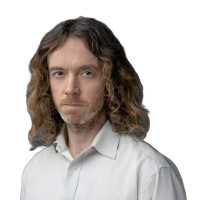




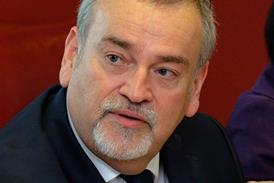
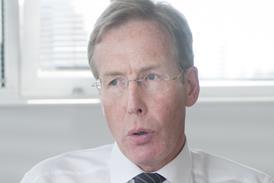
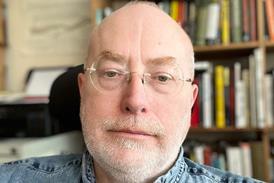
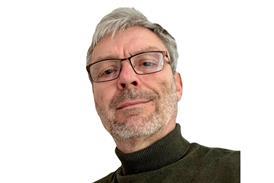
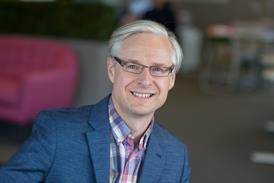










No comments yet